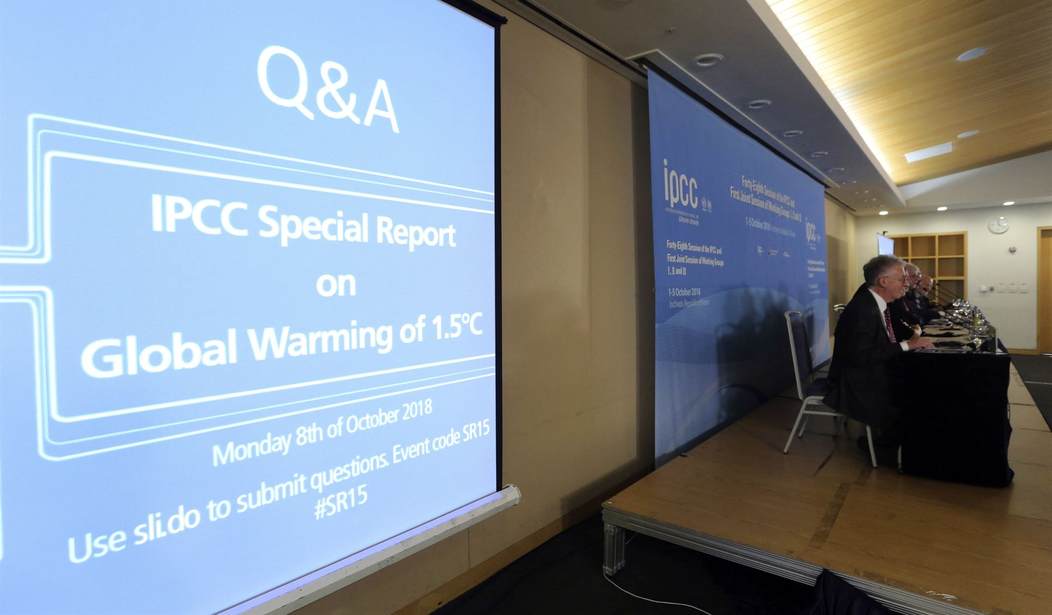On December 15th, the United States Department of State issued a statement concerning the recently concluded United Nations climate conference in (COP24) in Katowice, Poland. In it, they strongly defended America’s determination to protect the nation’s economic interests against seemingly the entire rest of the world’s intentions to impose economically crippling taxes and sanctions on the country.
The opening sentence of the statement set the tone for a powerful defense of President Trump’s America First philosophy: “The United States participated in COP24 to protect U.S. interests, advance a level playing field for U.S. business, and promote the U.S. balanced approach to economic growth, energy security, and environmental protection.” This defiant tone made it clear that America would not quietly submit to the global redistribution of the wealth envisioned by the promoters of the Paris Climate Accord. Rather it would mount aggressive opposition in order to protect its citizens and the economic vitality of the nation.
The statement went on to double down on Donald Trump’s decision to withdraw from the Paris Agreement by stating that the “Administration’s position on the Paris Agreement remains unchanged.” Prior to making that historic decision in June 2017, Mr. Trump came under huge world-wide pressure to remain in the Accord. He received withering criticism and scorn for his decision to walk away from a bad deal for the United States. Interestingly, a door was left open for America’s return to the agreement, but only if it included “terms more favorable to the American people.”
Why did the president make this decision? He rightly saw it for what it is: An agreement that will cripple our ability to compete on a level playing field, while doing very little to solve the non-existent problem of harmful man-made warming. (It is warming, but it is not our fault and it isn’t all bad.) The statement went on to say, “The United States is not taking on any burdens or financial pledges in support of the Paris Agreement and will not allow climate agreements to be used as a vehicle to redistribute wealth.”
Recommended
A recent paper by Bjorn Lomborg, an economist at the Copenhagen Consensus Center, estimated that the cost of measures to forestall global warming would be $1.5 trillion per year. What are the expected results from this expenditure?
According to Lomborg’s calculations using the MAGICC simulator, by 2100 (on the optimistic assumption that every nation on Earth adhered to its climate commitments) temperatures will have been reduced in his best case by 0.17°C (0.31°F). That is less than half of a degree Fahrenheit, or $42 trillion for each reduction of one-tenth of a degree Fahrenheit in global temperature. Trump correctly determined that this “investment in our future” would yield a very bad return on investment.
The really good news is that free market forces in America are yielding the results today that the heavy-handed bureaucrats at the United Nations sought to generate by imposition of carbon taxes and cap-and-trade schemes to reduce carbon dioxide emissions. While global CO2 emissions grew by 1.6%, in 2017, the United States led the world in reduction of carbon emissions. This was the third year in a row that emissions in the US declined and the ninth time this century. In fact, carbon emissions from energy use from the US are the lowest since 1992.
American innovation, private property rights and capitalism have led to a revolutionary sea change in the energy landscape by developing the vast oceans of natural gas through horizontal drilling and hydraulic fracturing. This has allowed the cleaner burning natural gas to replace coal as a source of much of America’s electric generation capacity, leading to lower CO2 emissions and an abundance of low-cost reliable energy to fuel the nation.
For world leaders supporting the Paris agreement, the specter of catastrophic warming provides the moral justification for ever-higher taxation, ever-tighter regulation, ever-greater state interference and ever-diminished private freedom. These leaders and environmental advocacy groups (even some misguided Republicans) will continue to apply pressure on the current administration to enact economically disruptive carbon taxes. Thankfully it appears that Mr. Trump has the backbone to do the right thing and continue to promote America’s interests over those of the United Nations who promote questionable science.

























Join the conversation as a VIP Member